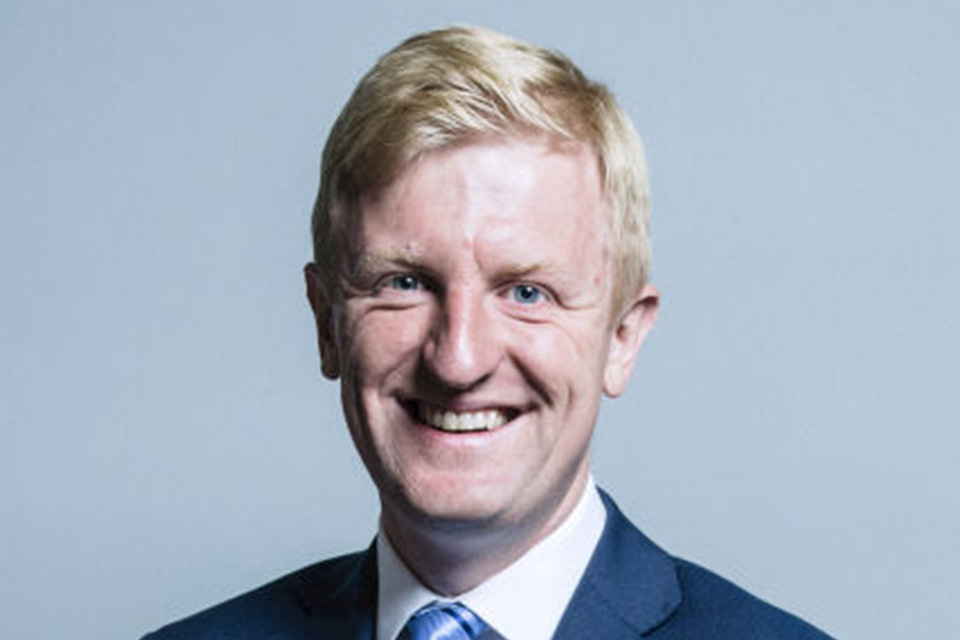Oliver Dowden's Opinion Piece for The Times on the BBC
The Culture Secretary discusses the Bashir scandal and the importance of a trusted, impartial and accurate press.

This article was originally published in The Times on 24 May 2021.
“Lord Dyson’s thorough investigation has exposed failures that strike at the heart of our national broadcaster’s values and culture. Long-serving employees of the BBC - people who have worked there their entire lives - have described the shame they feel about the revelations.
The BBC must act fast to restore trust, and reassure the country that it will shine a light on any other areas falling short of the high standards we rightly expect from it. The new leadership deserves credit for setting up an independent investigation and accepting Lord Dyson’s findings in full, and I expect them to act swiftly on all of his recommendations.
We will not stand idly by in Government either. We cannot and should not get involved in editorial decisions, but we should reflect on the lack of oversight and challenge that these decisions exposed.
The failures detailed in Dyson’s report occurred in the 1990s. Since then, fundamental changes to BBC governance have been made. The BBC Trust, half in, half out as it was, was clearly a flawed model and has been replaced by a more powerful Board and an independent regulator in Ofcom with the latter responsible for regulating the ‘content and standards’ of BBC content, and being the ultimate adjudicator of complaints.
We will now consider whether such failures of journalistic standards and governance could occur under the new structures. Would complaints and whistleblowers have reached the ears of those that had a duty to take them seriously, investigate and act on them regardless of the individuals or scoops involved?
We will not make knee-jerk reforms, but will use the mid-term Charter to determine whether the governance and regulatory arrangements should be strengthened. We will start the preparatory work on this now.
The mid-term review, a ‘health check’ provision established by my colleague John Whittingdale when the BBC’s Charter was last renewed, means we have a timely opportunity to look at governance at the start of next year. Its purpose is to look at issues such as the performance of the BBC Board and the effectiveness of the regulation by Ofcom. And we will need to be reassured that this system of governance and oversight is now sufficient.
We have seen throughout the pandemic its contribution to British life. As a conservative, I believe in preserving great national institutions. But the reason this report was so shocking was precisely because it happened at the BBC, that it went right to the top of the institution, and that it took so long to get to the truth.
As the Duke of Cambridge said in his powerful statement, in an era of fake news, public service broadcasting and a free press have never been more important.
I firmly believe we need trusted and impartial broadcasters, high-quality investigative journalism, and an independent and vibrant press today more than ever.
The BBC needs to improve its culture to ensure this never happens again and that means a new emphasis on accuracy, impartiality and diversity of opinion. As others have observed, the BBC can occasionally succumb to a ‘we know best’ attitude that is detached both from the criticism and the values of all parts of the nation it serves. Groupthink in any organisation results in a lack of challenge and poor decision making. That’s why cultural change must be a focus for the Director General and new Chair on the back of the Dyson report.
And of course, as we look to the longer term there are more fundamental questions about the correct funding model, shape and structure of the BBC. With intensifying competition from platforms such as Netflix and Amazon, the BBC cannot retreat. It must instead be equipped to step up to project British values and distinct quality programming with renewed vigour and ambition as our national champion.
A BBC the public genuinely trusts, respects and that serves the entire nation must be its defining mission.”